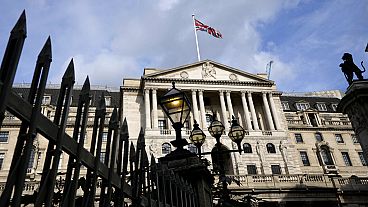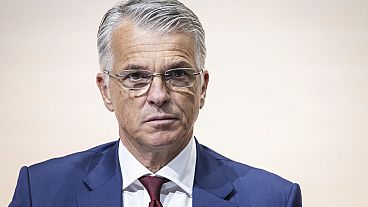Prices in Switzerland remained unchanged in March compared with the previous month and were only slightly up over the year.
Annual inflation slowed as prices rose 1% compared with the previous year in Switzerland, the Federal Statistical Office reported on Thursday.
The rate of the price increase was less than expected and also slower than the 1.2% measured in the previous month.
As a matter of fact, it was the slowest since September 2021, vindicating the surprise rate cut from the Swiss National Bank (SNB) last month.
Annual core inflation, excluding volatile items such as food and energy prices, also slowed to 1% from the previous 1.1%.
Prices remained unchanged compared to the previous month.
The stability of the index compared with the previous month was the result of opposing trends offsetting each other, the statistical office said.
Food and non-alcoholic beverages became cheaper compared to both the previous month and year, and there was a decline in healthcare prices, household goods and services too. Energy and fuel prices rose as well as the costs of clothing and footwear, international package holidays and air transport.
'Inflation disappeared in Switzerland in March'
"Inflation seemingly disappeared in Switzerland in March," UK-based foreign exchange company Monex Europe said in its commentary, adding that it was "validating the SNB’s decision to cut".
The Swiss National Bank cut its benchmark rate to 1.5% in March, saying that inflation has been below the 2% target since June 2023.
The bank has also lowered its expectations and is forecasting inflation to average 1.4% in 2024, 1.2% in 2025 and 1.1% in 2026.
The very low level of price change came unexpectedly, even though the Alpine nation, home to many of the richest citizens in the world, hasn't battled dramatic inflation for decades, like the rest of Europe where prices rose by a staggering 10% in November 2022, though they slid down to 2.4% ever since.
In Switzerland, the highest level of inflation was measured in August 2022 over the past 30 years, when prices rose by 3.5% in a yearly comparison. Monthly prices are even more stable, the average monthly inflation is 0.18% from 1950.
However, inflation could slightly speed up in the next months, according to the central bank governor Thomas Jordan, there is "very little risk" that prices will re-accelerate past the 2%.
Analysts at Monex Europe think that the real risks will be visible as the effects of looser monetary policy filter through into the economy, adding that "this leads us to believe that the SNB’s easing path remains data-dependent, even as today’s considerably weaker headline and core inflation readings suggests the Bank should be on a sustained easing path from here."
The Swiss franc has weakened considerably against the euro after the inflation data was released.



